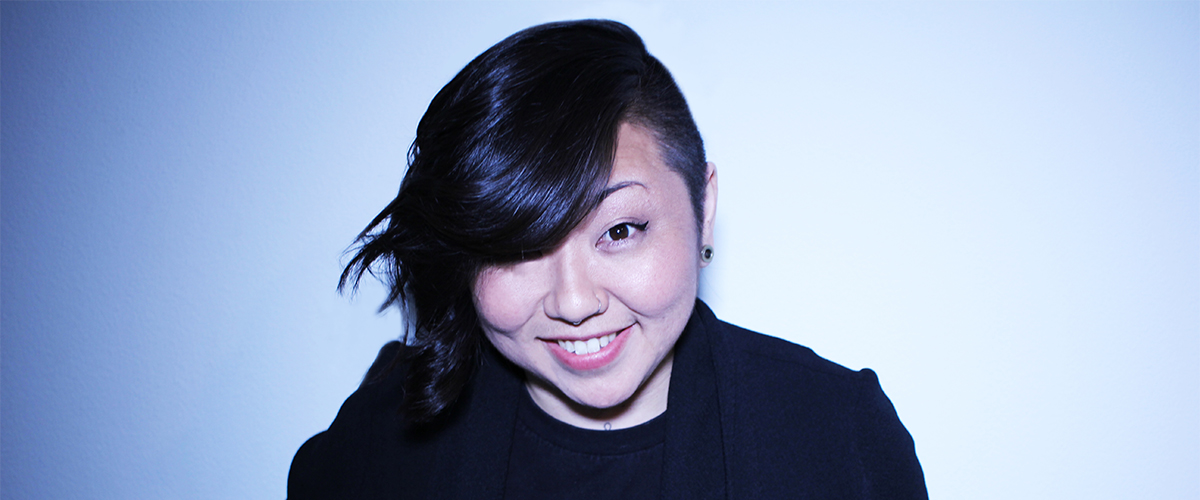Mental health is finally getting the attention it deserves.
In past years, stories concerning mental health awareness tended to be fear-focused. Mental illness was discussed in a hushed, wary tone. And oftentimes, people who sought out mental health help were framed in a less-than-flattering way.
Although modern mental health coverage isn’t perfect, it sure is better than it used to be. People tend to speak more freely about their mental struggles and their choice to seek out therapy. In addition to becoming less taboo, mental health treatment also is becoming somewhat easier to obtain.
We wanted to get a mental health professional’s opinion on all things “modern mental health,” so, we reached out to Traci Medeiros-Bagan, life coach and therapist.
Medeiros-Bagan updated us on her professional offerings and gave us some of her thoughts on mental health awareness and advice on how people can better their mental health on a daily basis.
You recently offered the Conscious Kink class and the Dating and Sex After Trauma workshop — How did they go?
Traci Medeiros-Bagan: The Conscious Kink class was a new workshop I was trying out, melding together mindfulness, sex positivity, healing and kink. I was super grateful that Kink.com hosted it at The Armory Club. It’s always lovely to do workshops through Armory Tours as it links me into community [in the San Francisco Bay area]. There is so much important work to be done around de-stigmatizing sex, sexuality and desires, and the Armory Tours Workshops do a great job of this through their fun educational series. I was also so appreciative of everyone that came and the feedback I received.
I’m currently looking into integrating all of that information and finding a space to do this workshop (and similar ones) in the Los Angeles area.
The Dating and Sex After Trauma Workshop was also a really amazing experience. And again, I’m so grateful for the collaboration — Everyday Feminism was wonderful to work with, and I think them inviting me to share on their platform really shows their dedication to the intersectional feminist media space they’re creating.
It was such heavy subject matter but it was also really inspiring. I got such lovely feedback on the importance of this shift in focus for survivors, beyond healing to pleasure! I’m definitely a believer that positive (and affirming) experiences around sexuality can be healing somatic practices in and of themselves. This workshop can actually still be watched through Everyday Feminism’s School for Social Justice.
Had the best fuel with @Kristel_Penn this morning at #LynnandLu's Escapade #Cafe! Thank you for the hospitality #Oakland! Ready to head over the bridge tomorrow for #ConsciousKink at @TheArmoryClub with @ArmoryTours! There are a few extra mats up for borrow if you want to join! pic.twitter.com/vp8E2efOQp
— Compassionate Revolt (@CompassionateR1) June 19, 2018
How can people keep the healing ball rolling after attending these types of workshops?
I hope that sex workers, cam models, and everyone, in general, continues to examine (and challenge) the negative beliefs that percolate in our culture around sex and sexuality. I believe that the more mindful we are, the more empowered we become and the safer we can all navigate positive experiences, whether in our personal sexual journeys or our professional ones. Of course, so many pieces are interconnected here. I realize that the healing work I do is on a very individual level, but I’m hoping that healing will continue to ripple outwards.
As for “keeping the ball rolling,” there’s a yoga sutra that basically reminds us that to solidify a new positive behavior we have to keep on doing it, for a long period, with enthusiasm, so if I can be so bold as to generalize it here, I say take good care of yourself, continuously, and make this amongst your highest priorities.
I was excited to see that you use tarot for guidance. Can you explain how people can use their own decks to meditate on?
Tarot has been such a powerful practice for me personally. I’m certainly no expert, but my bias is to use it intuitively. This means that while I do some studying around the traditional meanings, I also honor what resonates with me and my own journey. I pull from decks that speak to and reflect my identity, and I honor what comes up for me around the images and symbols as much as the classic interpretations. I don’t see tarot as future telling or any sort of direct advice, rather I utilize it as a tool to facilitate process. This is how I use it in my professional practice with others as well.
Sometimes it helps me and my clients zoom in and sometimes it helps us zoom out, but it always offers a bit of new insight and clarity. I speak to the novice tarot practitioner in my column for Little Red Tarot: Sunday Spread, Simple Tips for Not So Simple Lives.
These days, there seems to be more online mental wellness services, and even apps, that people can access and utilize. Do you think services such as these are helpful? Are there key things a consumer should look for when selecting an option?
As our interaction with technology increases, I definitely think that online services, apps, etc have a place in our self-care and wellness. And they certainly pull ahead of traditional in-person services in price and accessibility.
My advice for what indicates “good” is the same for any kind of service — it’s important that it works for you. This means that we need to take into account what our challenges are, what providers/platforms are saying they are offering and what level of support we need. For example, an online text/chat therapy service might be great for one cam model who needs a place to process and is already comfortable communicating in this format because they do it for work and their schedule is different than normal business hours. However, another cam model might not have safe personal space, time and equipment to do text/chat therapy from their own devices and going into an office and having someone dedicate 50 minutes to them might be really important to their healing work.
I would actually make a list of what it is you’re looking for in a provider. This list should include things you want to work on as well as if you’re looking for someone to be more directive, just listen, or offer you other strategies and tools. I think it’s also really important to check in with potential providers and ask them what their experience is supporting sex workers as well as what their beliefs are about sex work in general? Will this provider interpret any negativity in your life and/or mental health as related to the work that you do? Will you have to end up educating them on what your experiences are like?
For in-person therapy, Psychology Today can be a good place to start as they have a filtering system, but I’d also check out folks’ websites and see who offers free consultations to get to know them. As for the different online platforms, check out what deals/services they offer. One might be better for video chat while another might work better by phone or text chat. You might not be able to check off all the boxes you’re looking for but it’s important to remember that you have the right to interview your provider and make sure they’re a good fit for you!
Do you plan on conducting any new classes in the future?
I actually have another class coming up with Everyday Feminism at the beginning of August on navigating ethical non-monogamy so I’m excited about that as well as being added to their Speaker’s Bureau. I’ve also been brainstorming with my MeldxMend co-conspirators Kristel Penn and Hudsy Hawn about some self-care for sex worker offerings. Nothing solid just yet, but stay tuned!
How do you stay well? And how do you recommend people who work in the industry stay in-touch with their emotional and mental wellbeing on a daily basis?
My prescription for self-care is always an intention of balance for mind, body, heart and spirit with a healthy dose of compassion administered with much gentleness… I think the most helpful tool I’ve added to my self-care toolkit is mindfulness — observation without judgment of the present moment — when it comes to staying as close to center as possible. The more I practice, the less I notice imbalances in my system and the easier it is to find my way to balance again when I get off track. I love this practice because no matter where we’re at in our lives, even if we can’t meet every need/desire, we can give ourselves the gift of attending to what’s going on for us and trying to make an offering.
Here’s an idea: Before you head into a long series of calls/video chats, can you take a few deep breaths and check in with what’s going on in your mind, body and heart? Do you need anything before you get started? Maybe a glass of water? Do you check in with yourself at the end of a session? Do you feel good about your interactions with that client? Does it feel like the financial and energetic exchange was equal and consensual?
I think these are really important questions that we should be asking ourselves constantly. Sometimes with the rush of life and work, we can all get really good at ignoring our needs and then can be taken off guard when they demand our attention. A little tending and nurturing along the way can do worlds for finding more temperance for ourselves.
Traci Medeiros-Bagan is a licensed marriage and family therapist (CA LMFT #86600). Find her online at CompassionateRevolt.com and on Twitter at @CompassionateR1. You may also call her at (657) 333-2396 and email her at compassionaterevolt@gmail.com.

—
Abbie Stutzer is a writer and editor from Lawrence, Kansas. Find her on Twitter at @abbiestutzer and on Insta at @abbiestutzer. Email her at abbie@ynotcam.com.










